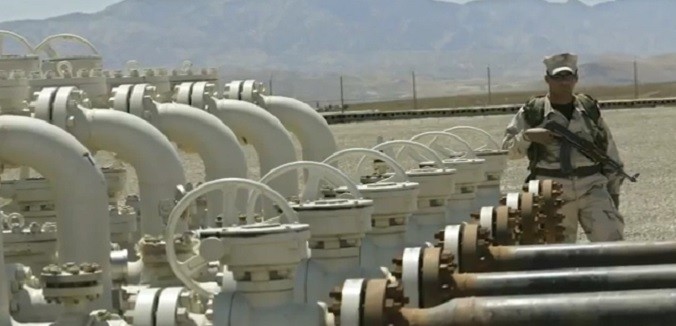Reuters on Tuesday published new figures indicating that Iran has for the eighth straight month violated crude export restrictions set by the interim Joint Plan of Action (JPA), with the outlet quoting a range of experts suggesting that the Obama administration has been deliberately looking the other way as Tehran busted through the caps:
“Iran is increasingly emboldened to export its oil,” said Mark Dubowitz of U.S.-based independent think-tank Foundation for Defense of Democracies (FDD).
“The Obama administration already has sent the message that it won’t crack down on Iran’s excess crude oil sales, condensates exports, or its transfer of crude oil to (Syrian President Bashar al-) Assad despite congressional demands,” he added.
The limits – which were announced in November, and formally took hold on January 20 – had been established to limit the financial windfall that Iran’s economy would reap from the deal, and restricted Iran to exporting an average of 1 million barrels per day of oil averaged over the JPA’s six-month period.
Iran exceeded the envisioned amount every month during the so-called ‘interim before the interim’ from November to January, functionally daring the West to scuttle the still-unimplemented deal over the country’s behavior. Once the JPA took hold, Iran continued to violate the deal every single month.
At stake is the degree to which Iran is managing to stabilze its economy, eroding leverage that Western negotiators are counting on as the Iranians and the P5+1 global powers head into the final stages of nuclear negotiations.
Reuters quoted a senior oil company executive noting that “U.S. authorities appear to have been very tolerant of rising Iranian condensate supplies, which have boosted observed imports of Iranian oil by Asian buyers.” The White House and State Department have been repeatedly and explicitly pressed on the matter, but have consistently maintained that there was sufficient time left on the JPA clock for Iranian exports to crash, such that the total six-month average would see Iran complying with the JPA restrictions.
That insistence came after Timothy Wilson, a visiting fellow at FDD, published numbers demonstrating that the hope was mathematically incoherent, and before this month’s figures confirming that Iranian exports had not even slipped below permitted amounts for June.
State Department Deputy Spokesperson Marie Harf on Tuesday more or less openly mocked those who she described as among the “many skeptics” who six months ago questioned whether Iran would adhere to the JPA:
QUESTION: Time may be running out, but he does – he lauds the Iranians for not only meeting, but exceeding, actually, some of your expectations, correct?
MS. HARF: Well, for being serious at the negotiating table. And I think – and this is an important point – I stood up here six months ago now, and there were many skeptics about the Joint Plan of Action, many skeptics about whether Iran would adhere to it, whether they would live up to their commitments, and they have. And Iran’s nuclear program is frozen today as a result of that.
So as we go forward, I’m sure there will be many skeptics over these next few weeks. But I would remind people that there were a lot of skeptics back in November and then in January when we implemented it. And it’s gone according to plan, which I think has been a significant step, and as we’ve negotiated a comprehensive agreement has provided something to base those negotiations on, that we have put in place an agreement that has been adhered to by both sides.
[Photo: Newsloop Top News / YouTube]




